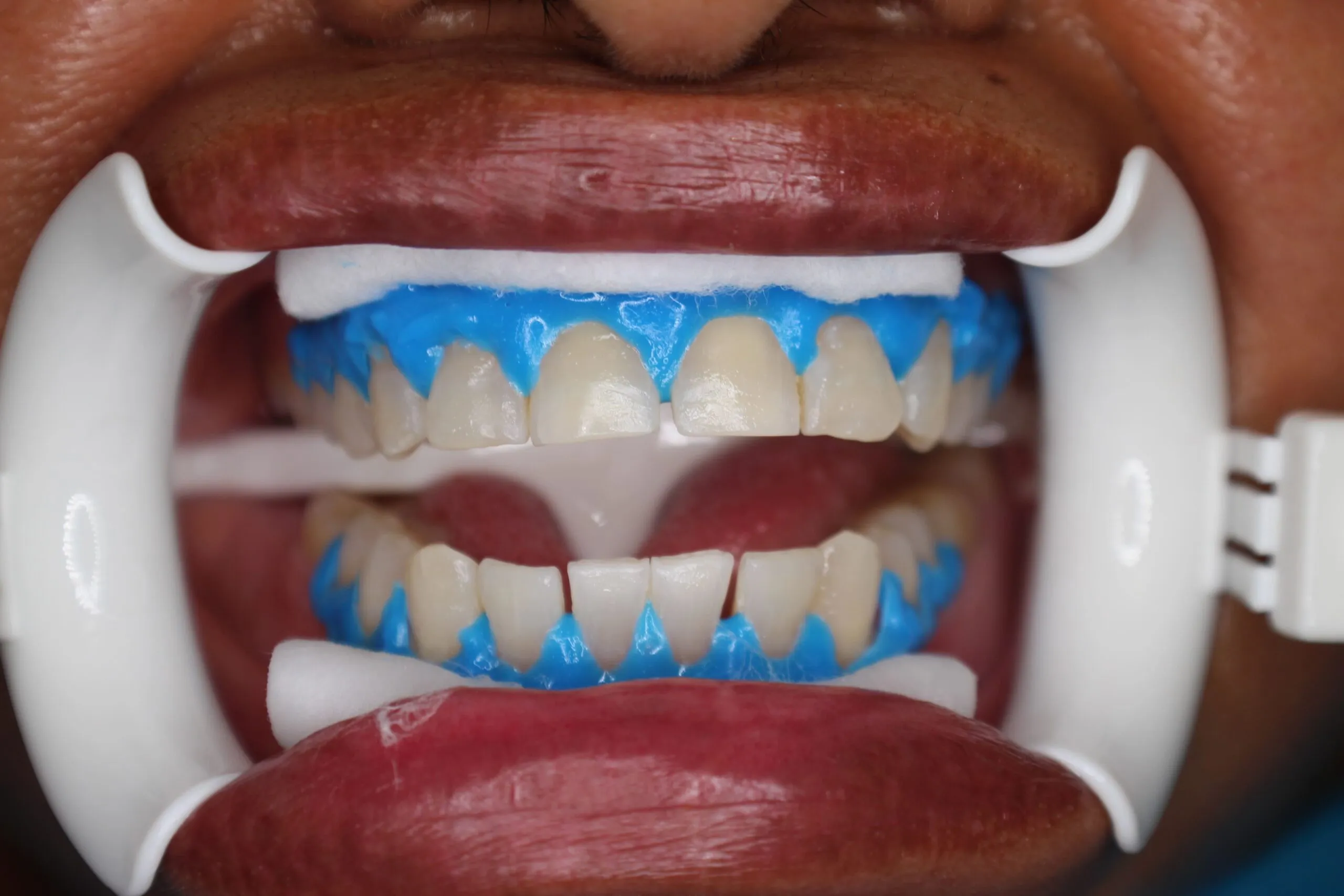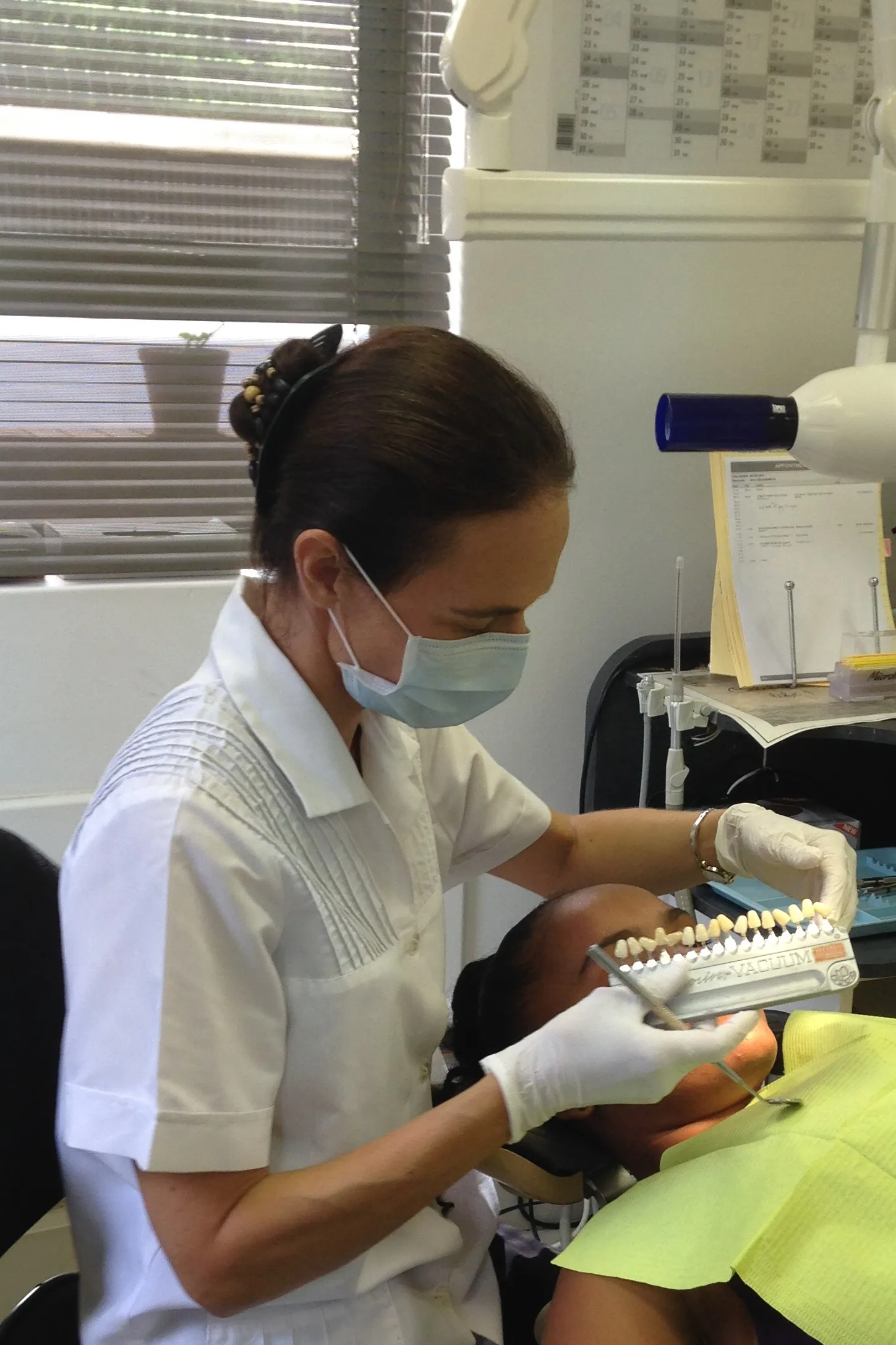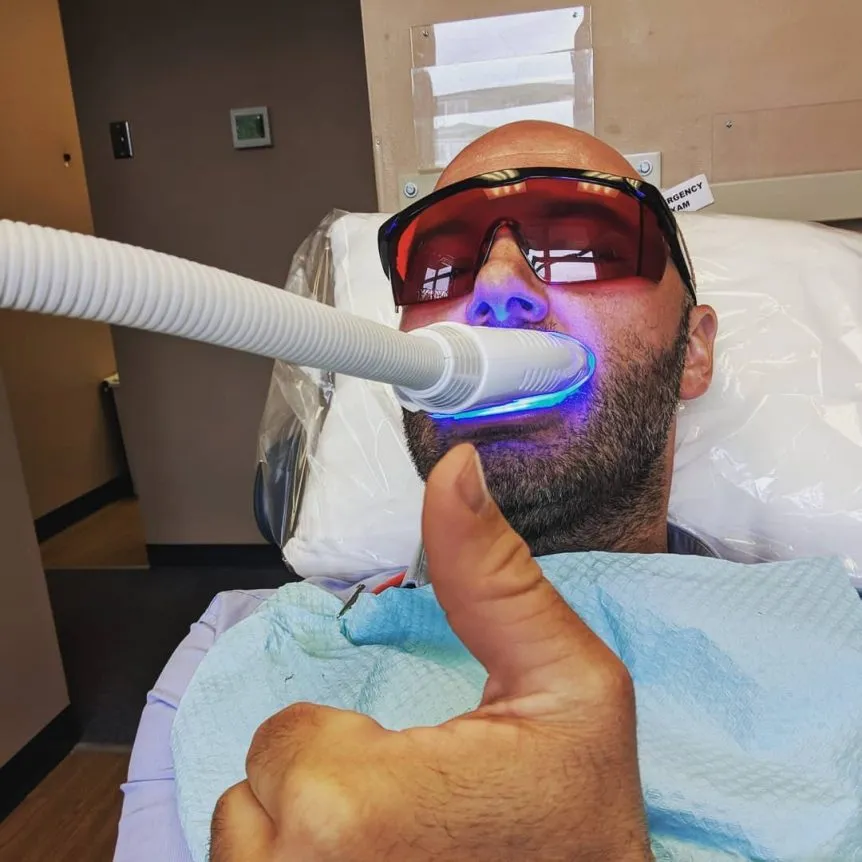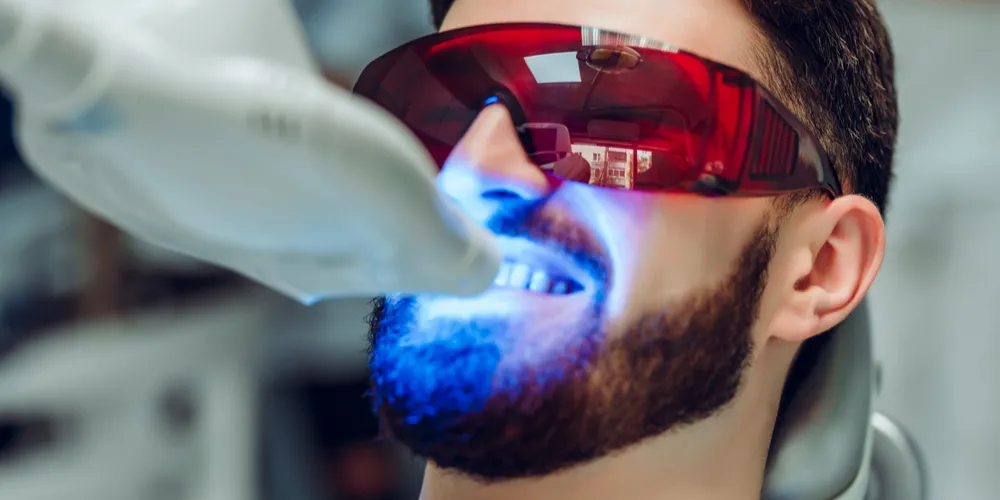What is Teeth Whitening
Teeth whitening, also known as teeth bleaching, is a cosmetic dental procedure designed to lighten the shade of your teeth. It’s one of the most popular and effective ways to enhance your smile and boost your confidence. The process involves removing stains and discoloration from the enamel, the hard, outer layer of your teeth, revealing a brighter, more youthful appearance. Discoloration can be caused by various factors such as the consumption of staining foods and beverages, smoking, aging, and certain medications. Teeth whitening treatments can range from over-the-counter products to professional procedures performed by a teeth whitening specialist.
Types of Teeth Whitening
There are several types of teeth whitening options available, each with its own advantages and disadvantages. These options typically fall into two main categories professional treatments and at-home kits. Professional treatments offer the advantage of being performed by a qualified specialist, ensuring safety and often yielding faster and more dramatic results. At-home kits, on the other hand, are more convenient and generally more affordable. However, it’s crucial to consult with a dental professional to determine the best method for your specific needs and to ensure the health of your teeth and gums. Understanding the different types can help you make an informed decision and achieve the smile you’ve always dreamed of.
In-Office Teeth Whitening

In-office teeth whitening is a professional procedure conducted by a teeth whitening specialist in a dental office. This method typically involves the application of a high-concentration bleaching agent, often containing hydrogen peroxide, to the teeth. The specialist will often use a special light or laser to activate the bleaching agent, accelerating the whitening process. One of the primary benefits of in-office whitening is the speed at which results are achieved; the procedure can often lighten teeth several shades in a single visit. The specialist can also monitor the patient’s comfort and ensure the safety of the gums and surrounding tissues throughout the process, minimizing potential sensitivity or irritation. For individuals seeking immediate and dramatic results, in-office whitening is often the preferred choice.
At-Home Teeth Whitening
At-home teeth whitening involves using whitening products in the comfort of your home. These can include over-the-counter options, such as whitening toothpaste, strips, and trays, or custom-fitted trays provided by your dentist. The effectiveness of at-home treatments varies depending on the concentration of the whitening agent and the consistency of use. Whitening strips are a popular choice, as they are easy to apply and use. Custom trays, on the other hand, offer a more tailored approach, as they are designed to fit your teeth precisely, ensuring even whitening and reducing the risk of gum irritation. While at-home methods may take longer to produce results compared to in-office treatments, they are often more affordable and convenient, allowing you to whiten your teeth on your schedule.
Choosing the Right Teeth Whitening Method
Selecting the most suitable teeth whitening method requires careful consideration of several factors. Your existing oral health is paramount; if you have any underlying dental issues, such as cavities or gum disease, these must be addressed before undergoing whitening. The degree of staining is another important factor; for significant discoloration, professional treatments may be more effective. Consider your budget and desired results; in-office whitening offers immediate results but is more expensive, while at-home methods are more affordable but may take longer. Discuss your options with a teeth whitening specialist, who can assess your teeth, recommend the most appropriate treatment, and guide you through the process. They can also provide insights to the potential sensitivity and risks of each method.
The Role of a Teeth Whitening Specialist

A teeth whitening specialist is a dental professional with expertise in cosmetic dentistry, particularly teeth whitening procedures. They possess the knowledge and skills to assess your oral health, determine the cause and extent of discoloration, and recommend the most effective whitening treatment. Specialists can perform in-office whitening procedures, ensuring the safety and efficacy of the treatment. They also provide guidance on at-home whitening methods, including how to use the products correctly and manage any potential side effects. Beyond the whitening process, a specialist offers valuable advice on maintaining a bright smile, including dietary recommendations and proper oral hygiene practices. Their role is to guide and support you throughout the entire teeth whitening journey.
Finding a Qualified Specialist
Finding a qualified teeth whitening specialist is crucial for ensuring a safe and effective teeth whitening experience. Start by seeking recommendations from your general dentist, who can often refer you to a reputable specialist. When researching specialists, check for their qualifications and experience; look for a dentist with specific training and a proven track record in cosmetic dentistry. Read reviews and testimonials from other patients to gauge their satisfaction with the specialist’s services. During your initial consultation, pay attention to the specialist’s communication style; they should clearly explain the procedure, address your concerns, and answer your questions thoroughly. Make sure the specialist’s office adheres to strict sterilization and safety protocols.
What to Expect During a Consultation
During a teeth whitening consultation, the specialist will begin by thoroughly examining your teeth and gums to assess your overall oral health. They will discuss your goals and expectations for teeth whitening and evaluate the type and severity of the discoloration. The specialist may take photos of your teeth to document your starting shade and create a baseline for comparison after the procedure. They will explain the different whitening options available, including in-office and at-home methods, and discuss the benefits, risks, and potential side effects of each. The specialist will provide a personalized treatment plan, tailored to your specific needs and preferences. This is also an opportunity to ask any questions you may have and gain a clear understanding of the entire teeth whitening process.
Preparing for Your Teeth Whitening Treatment

Preparing for teeth whitening involves several key steps to ensure the best possible results and minimize potential complications. Before your appointment, make sure to inform the specialist of any allergies or medical conditions you have. If you have any existing dental work, such as fillings or crowns, discuss with the specialist how they might be affected by the whitening process. Schedule a dental cleaning before your whitening treatment to remove any plaque or tartar, which can interfere with the effectiveness of the whitening agent. Avoid consuming staining foods and beverages, such as coffee, tea, and red wine, in the days leading up to your treatment. Following these simple steps can contribute to a smoother, more successful teeth whitening experience.
The Importance of Oral Health
Maintaining good oral health is crucial for the success and longevity of your teeth whitening results. Healthy teeth are better able to withstand the whitening process and achieve optimal results. It is important to treat any existing dental issues, like cavities and gum disease, before whitening. Regular dental check-ups and professional cleanings are vital for removing plaque, tartar, and preventing further issues. Good oral hygiene practices, including brushing twice daily and flossing, help to keep your teeth clean and bright. The specialist can provide tailored advice to optimize your oral health before, during, and after teeth whitening, helping you maintain a dazzling smile.
Maintaining Your Bright Smile
Maintaining your bright, white smile after teeth whitening requires a consistent approach to oral hygiene and lifestyle choices. Follow the specialist’s post-treatment instructions carefully, including any recommendations for sensitive teeth. Consider using a whitening toothpaste to help maintain your results. Regular dental check-ups and cleanings are essential for preventing the build-up of stains and addressing any new issues. Avoiding or limiting the consumption of staining foods and beverages, like coffee, tea, red wine, and berries, will help to preserve your bright smile. Consider using a straw to minimize contact of these beverages with your teeth. Remember that touch-up treatments might be necessary to keep your teeth looking their best. Consistent care will help maintain your beautiful, confident smile.
Foods and Drinks to Avoid

Certain foods and drinks can stain your teeth and reduce the longevity of your teeth whitening results. Minimizing or avoiding these items can help you maintain your bright smile for longer. Common culprits include coffee and tea, both of which contain tannins that can cause staining. Red wine is another significant source of stains, due to its dark pigments and acidity. Dark-colored sodas and juices, such as cola and cranberry juice, can also contribute to discoloration. Foods like berries, soy sauce, and tomato-based sauces can also stain your teeth. If you consume staining foods, rinse your mouth with water or brush your teeth soon after to minimize their impact.
Proper Oral Hygiene
Proper oral hygiene is essential for maintaining your bright, white smile and preventing future stains. Brush your teeth at least twice a day with a fluoride toothpaste. Floss daily to remove plaque and food particles from between your teeth and along the gum line. Consider using an antimicrobial mouthwash to further reduce bacteria and keep your mouth clean. Regular dental check-ups and professional cleanings are crucial for removing plaque and tartar that brushing and flossing alone cannot remove. Using a soft-bristled toothbrush can also help to protect your enamel. Consistent, thorough oral hygiene is your best defense against stains and discoloration and helps keep your smile looking its best for years to come.
Teeth Whitening Specialist Common FAQs
Teeth whitening is a popular cosmetic procedure, and many people have questions about it. Some common questions include: How long will my results last? The longevity of your results depends on various factors, including your diet, oral hygiene, and lifestyle choices. What are the potential side effects? The most common side effect is temporary tooth sensitivity, which usually subsides within a few days. Can I whiten my teeth if I have fillings or crowns? The whitening agent will not change the color of existing dental work, so it’s essential to discuss this with your specialist. Is teeth whitening safe? When performed by a qualified specialist, teeth whitening is a safe and effective procedure. Always consult with a professional to address any concerns and determine what suits your needs. Getting answers to these common questions ensures a smooth process and helps set realistic expectations.
